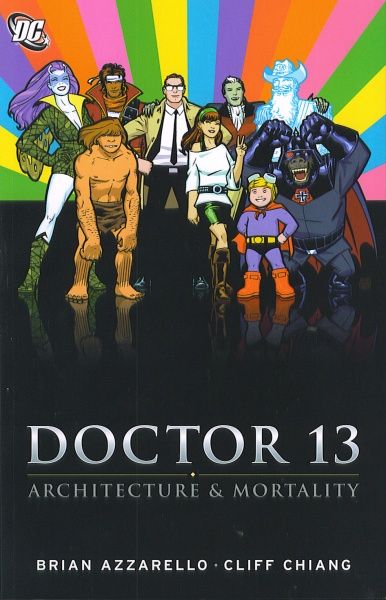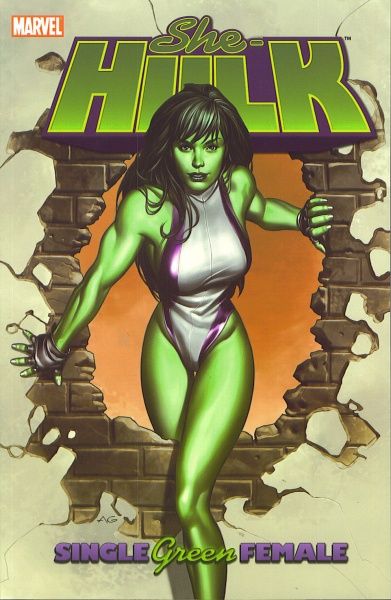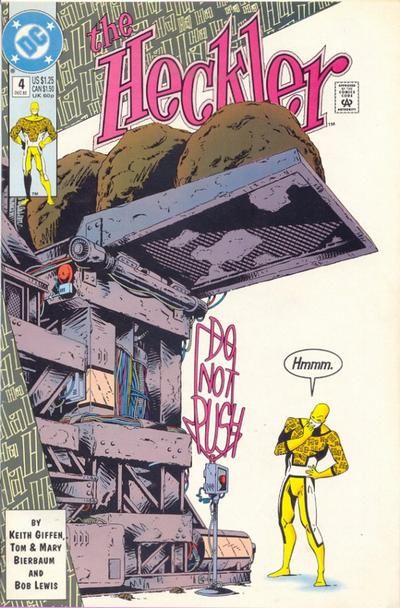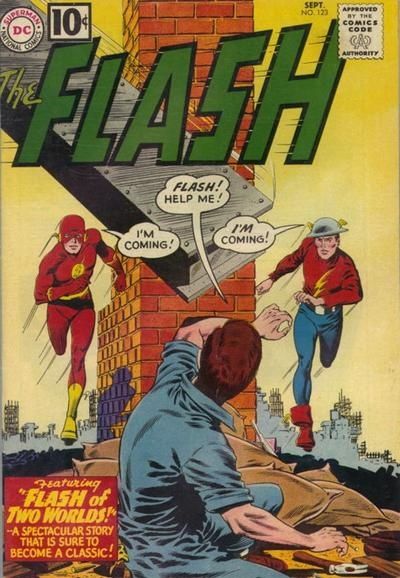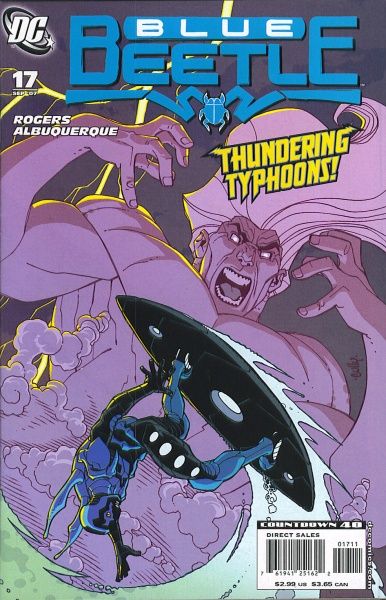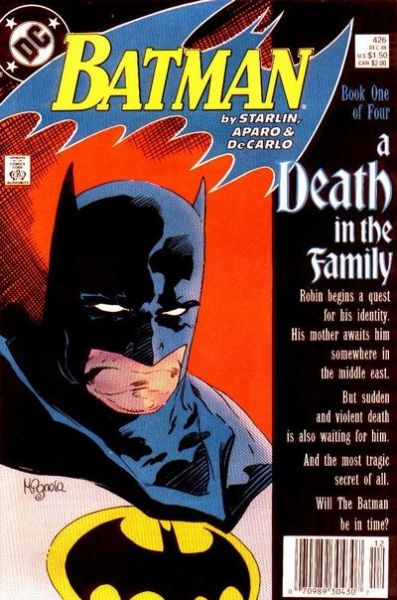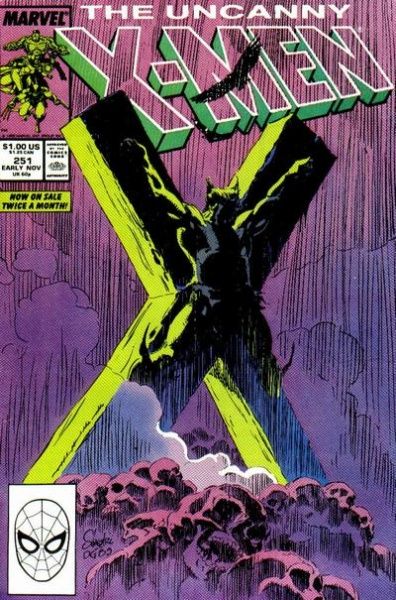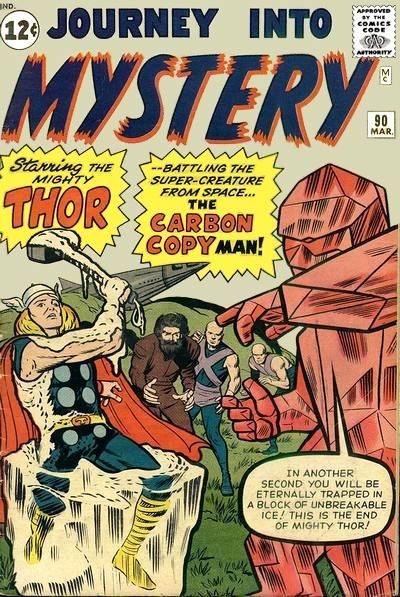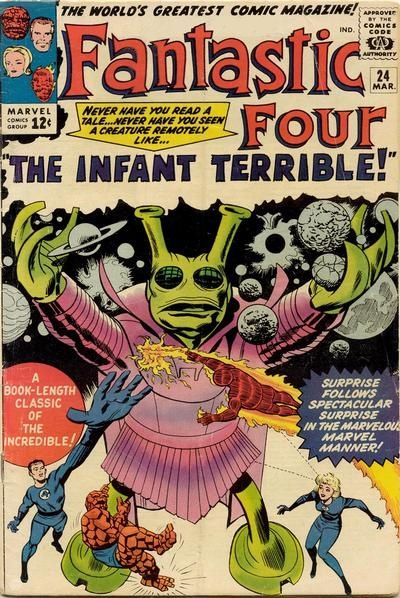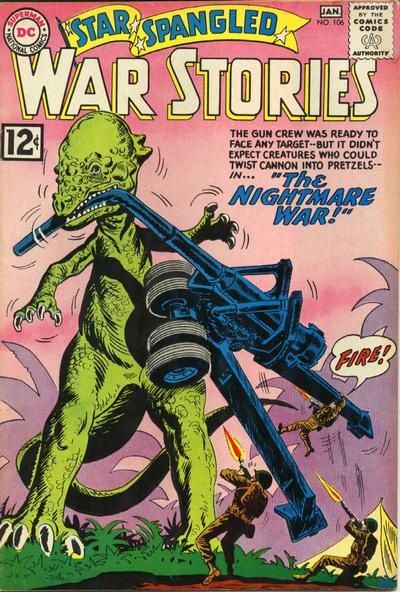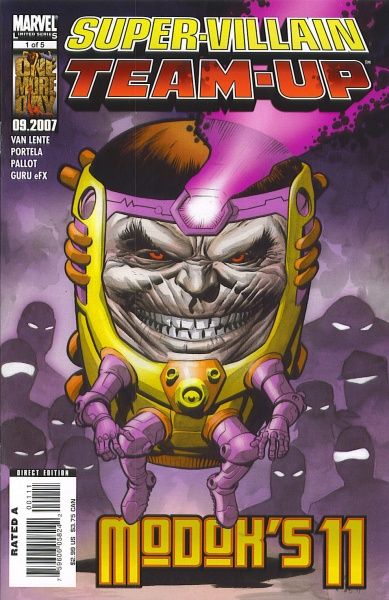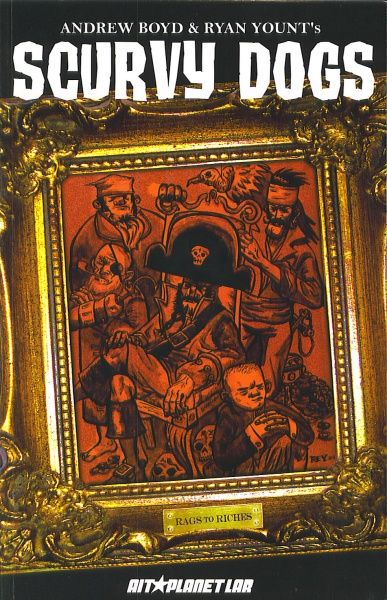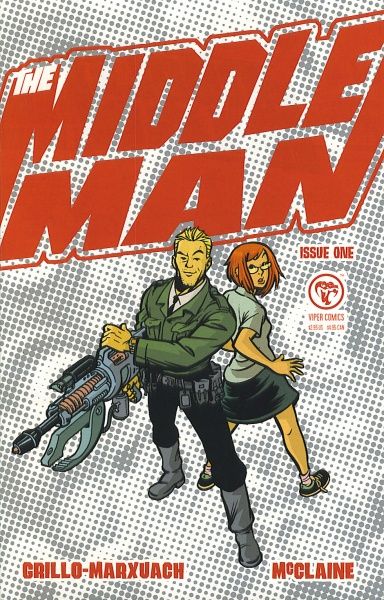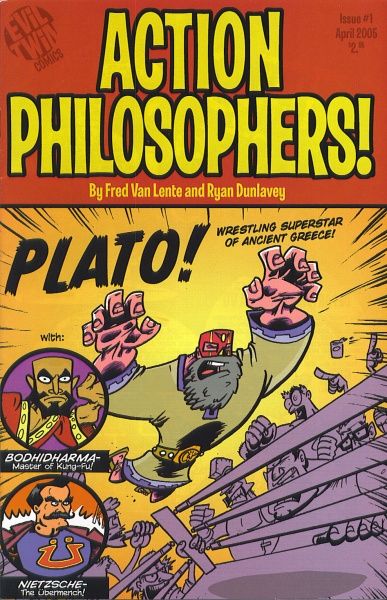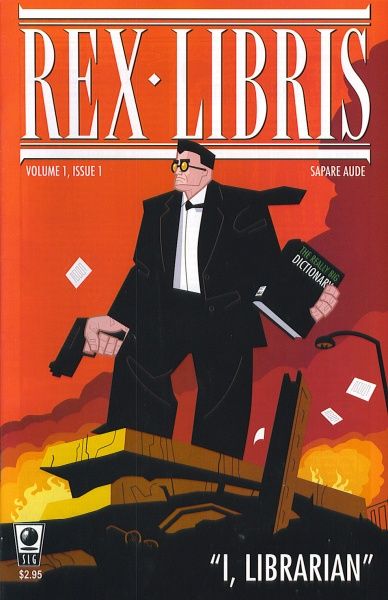Dick Hyacinth's post about "the war on fun" got me thinking.I know, how surprising.
Dick linked to a few back-and-forth posts on a blog and LiveJournal that I'm not going to get into, and then launches into a discussion of "fun" comics and the dialectical position taken by many comics fans. He's inspired, he writes, by linking to Abhay's review of Doctor 13: Architecture and Mortality. I read the Dr. 13 book, and while I liked it, I don'tthink I liked it as much as many other people I have read did.It was charming, but I think Azzarello got a bit too cute with the one-liners. Cliff Chiang's art was nice, though. And the metafictional aspects were decent if a bit obvious.
Abhay goes into the fact thatDoctor 13 is the latest in thegenre of comics known as"Comics Have Abandoned Their CharmingPast, and the Present isTherefore Fucked." He wants to give it a better name, something that ends in "-core," and only one commenter attempts it, with "Pollyanna-core" or "Rose-tinta-core." I don't know, I'd call it "whinecore." But that's just me.
Abhay goes over the history of this genre, surprisingly missing Flex Mentallo (although someone brings it up in the comments), and then the comments debate whether he misses the point of Doctor 13. Both of these posts, however, imply that DC and Marvel don't do "fun" anymore, and even if they do, there's a level of irony in them that can't be helped because of the writers' prejudices and exposure to all the "grim-'n'-gritty" comics of the past few decades. Dick and Abhay might argue with my inference of the posts, but it's not necessarily what they think, but whatI'm reading into the posts.
Leaving all that aside (especially if I'm completely off-base, as I usually am), the notion of "fun" comics is something that percolates up every so often, and I think it gets tossed around without really defining what "fun" comics are. So, what are "fun" comics? That's the problem: no one can really agree on a definition.
I'm occasionally accused of not liking "fun" comics. That's certainly an opinion, but it usually comes down to me not liking something that other people like, and therefore I'm accused of "not getting it" because it's a "fun" comic. Whatever, say I. Usually, however, the person doesn't really offer an explanation of why that particular comic is "fun." Anyone who has read this blog for a while knows I like "fun" comics. Just because I don't happen to enjoy, I don't know, Dwayne MacDuffie'swriting doesn't mean I don't like "fun" comics.
So what do we mean when we speak of "fun" comics? Thanks to my keen observational skillz (yes, with the "z"), I have gleaned some ideas about what people mean when they say that. Let's ramble!
1. "Fun" comics are funny. This isn't necessarily true, of course. However, humorous comics are, almost by definition, "fun." There's the occasionalbook with black humor that might not be "fun," but otherwise, humorous books are "fun." She-Hulk is mostly a "fun" book. In fact, Dan Slott seems to hold a monopoly on "fun" comics at Marvel. I guess he got so depressed writingArkham Asylum: Living Hell for DC that he needs to purge by writing "fun" comics for Marvel.
2. "Fun" comics tell superhero stories without angst or irony.After the many deconstructions of superheroes over the past, say, 30 years (if not more), it seems as if you can't tell a superhero story without some kind of irony. Everyone knows about Watchmen, so it's difficult to read a superhero story without thinking about how silly it all is. This is why, on one level, a book likeCivil War doesn't work. These days, if awriter writes a superhero story that shows a hero simply winning a battle against a bad guy joyfully and triumphantly, it becomes a "fun" comic. We revel in the heroic nature of the story because we can enjoy it without worrying that it's creepy. "Yay!" we say. "The MagentaMongoose beat up Count von Jerkyface and saved the school full of Guatemalen nuns and school children! He's so awesome!"
3. "Fun" comics remind us of our childhood. Ah, this is where we get deeper into it. This certainly ties into the notion of superhero stories free of angst or irony, and gets closer to what I think people mean. This is odd, however, in thatcomics have been somewhat "dark" for many years, even before the "grimmification" of them in the mid-1980s. So whose childhood are we talking about? I was born in 1971.I have no idea how old theother people who write for this blog are (Brian is younger than I am, but that's all I know). Hell, I don't even know if they are using their real names, for crying out loud! I mean, come on -"Cronin" sounds like some kind of tough-guy name from some 1970sdetective show, and "Hatcher" has to be made up, right? What's he hatching, exactly? Similarly, I don't knowhow old the people who read and comment on the blog are.But, because I'm the Center of the Universe, let's assume 1971 is a decent median birth year for the writers and readers. When were comics ever "fun" for thevast majority of people born within ten years, either way, of that date? If you were born in 1971 and you read comics when you were a kid, you got late-1970s stuff like Englehart on Detective or Claremont on X-Men. You got Scorpio committing suicide in Defenders. Granted, I have very little knowledge of most 1970s-era comics, but the majority ofmainstream stuff doesn't strike me as particularly "fun." I'm not passing judgment on the quality, mind you, but rather the "fun" quotient of the books. I have often mentioned that I didn't start reading comics until I was 17, which makes me somewhat of an anomaly, as far as I can tell. So my first comic featured a phone number you could call to decide whether or not Batman's sidekick would die. Not "fun" at all.The first Uncanny X-Men comic I bought featured Wolverine nailed to a big wooden X. Not terribly "fun." So I never read "fun" comics when I was young, or even when I started reading comics. WheneverI hear people waxing poetically about "fun" comics they read when they were but lads andlasses, I wonder what they're talking about. I'm not questioning their memories, exactly, but I do wonderprecisely which comics they recollect so fondly.
4. "Fun" comics remind us of the Silver Age. This is a bit deeper than #3. The Silver Age of comics is the "proto-childhood" for us all, whether we were there to experience it or not. So we feel nostalgic for comics that we never read when they first came out, but first came in contact with when we were already old enough to realize the reach of comics back into the past. For some reason, many comic book readers gravitate toward the Silver Age. I'm not sure why. MarkAndrew coined a great term for how I feel about the old days of comics: "reverse nostalgia," meaning I denigrate anything that was published before, let's say 1980, and laud the stuff published since then. I love that term even though I don't necessarily agree with it. I like Golden and Silver Age comics (I just bought the fourth volume of Batman Chronicles, which is reproducing every Batman comic in chronological order, and it's a fantastic series of books), I'm just not overwhelmed by love for them. My biggest problem, I suppose, is that I don't get it. I read the first 40 or so issues of Fantastic Four, or the Superman and Batman comics of the 1950s, and I don't understand why everyone salivates over them so much. Perhaps this is because I can't appreciate the newness of it all, especially when it concerns the early Marvel stuff. Maybe I'm too jaded. Maybe I started reading comics too late in my life. I don't know. I cannot understand what is so revolutionary about Lee's writing and, especially, Kirby's art. I get the revolutionary ideas behind the early Marvel stuff, but I don't understand the Kirby Love. I apologize, but I don't. I also can figure out the various themes running through the comics - fear of nuclear war, the unknown of space, the new counterculture - but that doesn't mean the comics were well-written or nice to look at. I've said before that I think Neal Adams is the first true modern mainstream comic book artist, because his drawings look like people actually doing things. I could probably amend that statement to say Steranko is, but I guess we could go all the way back to Eisner. However, until the early 1970s, comic books just don't look very good. The proportions are off, the action is poorly staged, the figures are blocky, and the panel layout inhibits perspective and dynamism. But I recognize, however, that the comics from the late 1950s and early 1960s are "fun" in that they tell simple stories of good and evil, with a lot of craziness involved. I don't think they're necessarilygood comics (although they can be), but I understand why people think they're "fun." They remind us of what we think of is a simpler time. Comics from the 1950s and early 1960s are Republican Comics - they recall a time that never existed, but to which we all want to return. I'm not sure why people who didn't experience them first-hand recall them so fondly, however. Can anyone tell me?
5. "Fun" comics have certain "fun" elements. This is the last criterion for "fun" comics - the inclusion of certain "fun" things, thereby making the comics themselves "fun." These elements include (but are not limited to): pirates; ninjas; martial arts (which may or may not be used by the ninjas); talking apes (talking animals, really, but apes are the best, the more foul-mouthed the better); dinosaurs; fat people; Mexican wrestlers; snooty French people; M.O.D.O.K.; Z-list characters from, you guessed it, the Silver Age; goofy Nazis (real Nazis are still for "serious" comics); A.I.M. (but not necessarily Hydra); and nerds, especially comic book nerds. If you put one or more of these things in your comic, everyone will call them "fun" and ramble about how it reminds them of the best Silver Age comics. Why did everyone get pissed about Identity Crisis? Not necessarily because a villain raped a character (although that's a big part of it). People were pissed because it was Dr. Light, a Z-list character from, you guessed it, the Silver Age, raping a woman whose shenanigans with her husband embody "fun" comics (read the Elongated Man mini-series that "Bill Reed" loves so much - very good comics, and kind of "fun"). Brad Meltzer didn't just write an unpleasant, disturbing, and, in the context of the series, inexplicable scene, he took characters that people thought of as "fun" and, you know, shit all over it. The disconnect between what we think of as these characters and the actual scene made people go nuts. As I've mentioned, I didn't go nuts over the scene because of that, because I don't really have much connection with the Silver Age. I objected tothe rapebecause it was idiotic.
There's another thingthat people think of when they talk about "fun" comics, and that is it must be published by a company they've heard of, preferably one that was publishing comics during the Silver Age. Therefore, some people (not all, of course) claim that only DC or Marvel comics can be "fun." This gets back to what Dick was kind of touching on - superhero fans claim that indie books can't possibly be"fun," becauseall indie creators are hopelessly obsessed with the utter darkness of the world and all their books are concerned with incest and throwing people down wells. That attitude is why some people accuse me of not liking "fun" comics - becausemany of the "fun" comics I like don't come from DC or Marvel. Some of them do, of course, but then again, many don't. I still say if you claim nobody does "fun" comics anymore after you've been made aware of the existence of Scurvy Dogs, The Middleman, Action Philosophers!, and Rex Libris, then you should shut up. There are plenty of "fun" comics, both from the Big Two and from smaller publishers. The point is to find them.
But should we look for them? I much prefer to read "good" comics, whether they're "fun" or not. Ican easily switch from enjoying Gamekeeper, which features a scenein which fighting dogs turn on their masters, to Cable & Deadpool, in which Bukcy Barnes keeps wondering what the "H" Bob's jumpsuit stands for. I can easily switch from reading a"fun" Garth Ennis comic in whichzombie baby seals attempt to kill ourheroes to a "serious" Garth Ennis comic in which a priest commits suicide to escapefrom the Devil only to wind up inHell anyway. I'm not sure why there's an insistence on comics being "fun." Of course, maybe there isn't. Maybe I'm just seeing itwhere it doesn't exist. Comics should, after all, be anything they can be. "Fun" is just a small part ofthe entertainment spectrum. Not all comics should be "fun." Comics should be good. Which sounds like a good clarion call. Or blog name.
My question, after all this rambling, is what makes a comic "fun"? Do you insist on reading "fun" comics, or do you care all that much? If so, why do insist on it? And why are people who didn't exist duringthe late 1950s-early 1960s so obsessed with the Silver Age? You can beobsessed all you want - more power to you - but as someone whodoesn't get it, what's the deal? I'm curious. And that's why we're here, right - to share ouropinions! And what's your theory - is Cronin atough-as-nailsprivate dick who's alwaysabout to get evicted from his office because he can't make rent and who has a slight drinking problem? "Next week onCronin: A mysterious woman from Cronin's past re-enters his life with an offer of a job. But does she bring money ... or murder?????"
(As usual,many thank to the Grand Comics Database for the older scans.)


